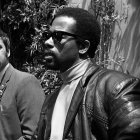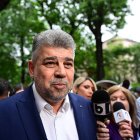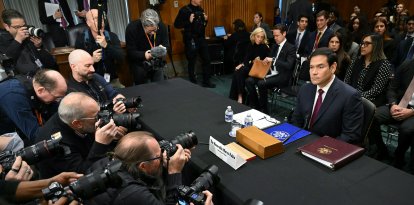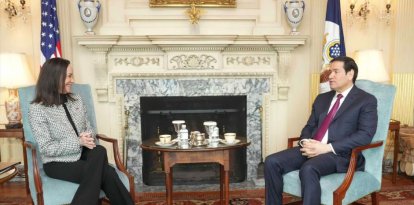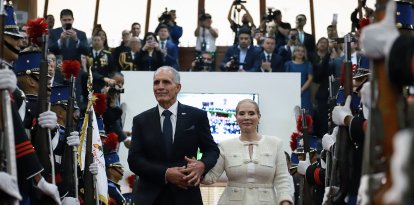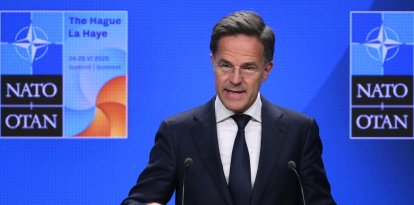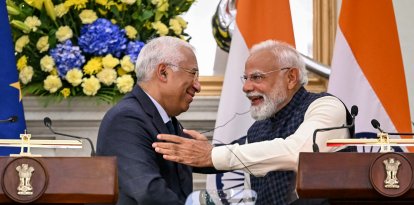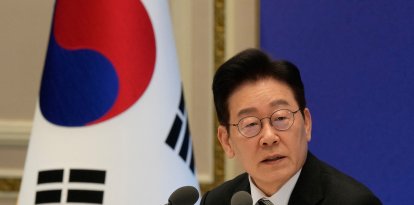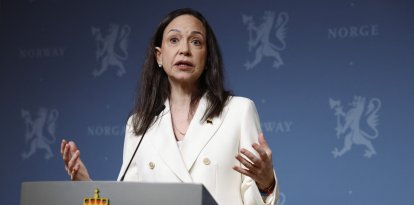The best of the II International Congress of Victims of Communism: "It is important to memorialize so that atrocities do not fall into oblivion"
The event took place in Madrid, Spain, with an interesting range of speakers and was run by the Center for Studies, Training, and Social Analysis (CEFAS).

One of the panels of the event held in Madrid
The city of Madrid (Spain) witnessed the II International Congress of Victims of Communism, which this time carried the following slogan: "The Years of Lead: Revolutionary Terrorism in Europe." The event brought together dozens of speakers from various countries, who were divided into eight conferences. While they covered topics ranging from repression and crimes in Eastern Europe to Kazakhstan as "the epicenter of the Gulag system in the Soviet Union," they all had the same goal: to remember with historical perspective the horrors of communism in the region.
The two-day event was held at the CEU San Pablo University, which was attended by personalities from Hungary, the United States, Poland, Romania, Peru, and Cuba, among others. The event was organized by the Center for Studies, Training, and Social Analysis (CEFAS).
- Author and historian Alfonso Bullón de Mendoza opened the conference and then gave way to the start of the different panels.
"An ideology of evil".
Professor Elio A. Gallego left a forceful definition of the morality of communism to start the day: "There are different ideologies of evil. Only by knowing their ideological scheme will we be able to recognize other forms of evil and, what is more important, be able to know the different forms of good."
Already in the panel baptized as "The Iron Curtain: crimes and repression in Eastern Europe", Professor Jan Stanislaw Ciechanowski stated that "communism disguises itself with the slogan of liberating the proletariat," justifying each and every one of its actions in the process.
"What to do with the past? It is important to memorialize so that the atrocities of the communist dictatorship do not fall into oblivion," added Ádám Dergán, deputy director general of the Hungarian National Remembrance Committee.
George Bologan, current Romanian ambassador to the Holy See, took up the gauntlet of the moral discussion on communism. "Totalitarian regimes destroyed human sensibility. Communism replaced religious transcendence with the promise of an immanent salvation," he remarked.
Another panel was moderated by Mario Noya, director of Voz.us. The objective of the panel was to analyze the "new left of the 21st century" and the challenges it implied for the ideas of freedom. The panel was integrated by the senior fellow of the Heritage Foundation (USA), Mike González; the director of the Madrid office of the Center for Fundamental Rights (Hungary), Vajk Farkas; and the founder of the Union of Democratic Organizations of America (Venezuela), Alejandro Peña Esclusa.
González, who referred to the victory of Donald Trump in the last presidential election, stressed that this result was a "relief" for private companies, since they no longer had to follow "woke objectives."
Focusing on Latin America, Peña Esclusa remarked on the importance of confronting the Sao Paulo Forum: "If drug trafficking and organized crime were defeated, the Sao Paulo Forum would collapse. The socialism of the 21st century translates into the conversion of America into a region of drug trafficking and crime."
In relation to Hungary, Farkas highlighted the opposition of the government of Viktor Orbán to the "woke ideology," which has earned them several reproaches from the European Union. "The dynamic between the European institutions and Hungary is that they want to impose neo-Marxist ideologies on us, and our refusal makes them cancel us out," he said.





